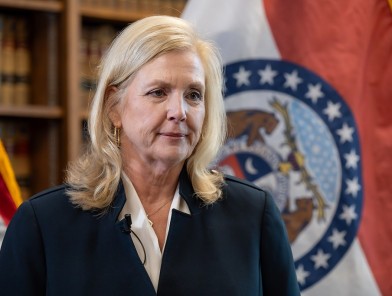Sex trade survivors are increasingly advocating for partial decriminalization and improved exit services. Audrey Morrissey, co-executive director of My Life My Choice, passionately addressed the State House on Tuesday, urging support for Black and brown women of color trapped in the commercial sex industry. As a survivor herself, Morrissey highlighted the challenges faced by individuals attempting to leave the sex trade, emphasizing the lack of employment opportunities and adequate housing as major obstacles. Without a clear pathway out, many survivors end up returning to the life they desperately want to escape.
A Coalition of Advocates Support Legislative Changes: Morrissey joined a coalition of advocates who convened at the State House to voice their support for legislation presented by a group of Democrats. The proposed laws aim to prevent the criminalization of individuals involved in buying and selling sex, while also seeking to repeal statutes related to common streetwalking, nightwalking, sex for a fee, and solicitation for prostituted persons. Multiple bills addressing sex work were discussed during the hearing, including one from Rep. Lindsay Sabadosa, which advocates for the decriminalization of most sex work and the expungement of records related to cannabis and prostitution.
Balancing Views on Sex Work: While some advocates express concerns that Sabadosa's bill may be too far-reaching for a society that still holds conservative attitudes towards sex work, they look to an alternative bill supported by Morrissey. The latter bill, filed by Reps. Mary Keefe, Tricia Farley-Bouvier, and Sen. Cindy Friedman, takes a more conservative approach. In addition to partial decriminalization, this legislation proposes an income-based fine for purchasing sex and the establishment of a committee dedicated to enhancing support and exit options for individuals who have been prostituted. Furthermore, the bill advocates for the expungement of past criminal charges related to prostitution, common nightwalking, and streetwalking.
Addressing Historical Exploitation and Establishing Pathways to Exit: Farley-Bouvier highlights the bill's significance in countering the historical exploitation ingrained within the United States' sex trade. By decriminalizing prostituted individuals and providing them with opportunities to exit the trade, the legislation takes a small step towards rectifying the nation's troubling past. Friedman asserts that existing laws fail to acknowledge the needs of those forced into the sex trade due to trafficking, coercion, manipulation, or economic desperation. The Arlington Democrat emphasizes the necessity for a comprehensive and nuanced approach to sex work and prostitution that prioritizes survivor protection, enhances opportunities for at-risk populations, and breaks the cycle of intergenerational poverty and exploitation.
The Urgent Need for Exit Services: Morrissey emphasizes the vital role of robust support systems in preventing young individuals from falling into the sex trade. Reflecting on her own experience, she states that with the presence of exit services during her teenage years, she might have been able to leave the industry much earlier. Expunging criminal records and offering alternative pathways to a better life are essential components of supporting survivors. Morrissey passionately asserts the importance of creating a path for individuals to live, rather than merely survive, emphasizing the necessity of providing comprehensive exit services.
Conclusion: Sex trade survivors and advocates are actively fighting for partial decriminalization and improved exit services for individuals involved in the industry. Legislation proposed by a group of Democrats aims to prevent the criminalization of those bought and sold for sex while repealing laws related to common streetwalking, nightwalking, sex for a fee, and solicitation for prostituted persons. These efforts, supported by a coalition of advocates, seek to provide survivors with a pathway out of the sex trade, while also addressing historical exploitation and the needs of individuals coerced into the trade through trafficking, coercion, manipulation, or economic desperation. By adopting a comprehensive and nuanced approach, policymakers can protect survivors, offer greater access to opportunities for vulnerable populations, and break the cycle of poverty and exploitation.
It is crucial to recognize that the sex trade has deep roots in the history of the United States, characterized by the buying and selling of humans. By embracing partial decriminalization and implementing effective exit services, the proposed legislation acknowledges this troubling history and takes steps toward rectifying the injustices suffered by those involved in the industry.
The testimonies of survivors like Audrey Morrissey highlight the urgent need for comprehensive exit services. Many individuals, especially young girls, find themselves trapped in the sex trade due to a lack of viable alternatives. Expunging criminal records and providing support systems can empower survivors to reclaim their lives and forge a new path forward.
The movement toward partial decriminalization of the sex trade, combined with enhanced exit services, represents a significant step in the right direction. By focusing on survivor empowerment, breaking the cycle of exploitation, and providing opportunities for a better future, society can strive to create a more just and compassionate environment for those impacted by the commercial sex industry.













